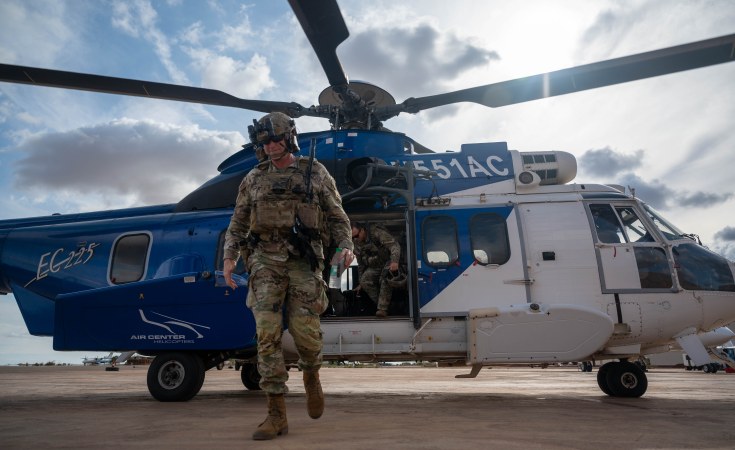Abuja, Nigeria — Analysts in West Africa are raising concerns about U.S. military operations across the Sahel after Niger ended military cooperation with the United States on Saturday. The U.S has hundreds of troops stationed at a drone base in northern Niger and has been helping with regional counterterrorism operations against jihadist groups.
Saturday's announcement from Niger's National Council for the Safeguard of the Homeland came days after a U.S. delegation visited Niger, the second American team to visit since a group of military officers seized power last July.
It remains unclear what prompted the decision to cut military ties with Washington, but Council spokesman Colonel Abdou Ab'daramane said U.S. flights over Niger's territory in recent weeks were illegal.
He also said the U.S. delegation had accused Niger of a secret deal to supply uranium to Iran and showed "condescending attitude against the government and people of Niger."
Niger plays a pivotal role in the U.S counterterrorism operations in Africa's Sahel region and hosts a major military air base in the city of Agadez.
Security expert Saheed Shehu of says there will be implications for regional security.
"Certainly we'll see a spike of insecurity in those areas because the bad guys are also looking at the development," Shehu said. "But I believe it's not going to last because America is not going to sleep. America is going back to the drawing table to see how they can accommodate the complaints that were made by Niger."
The U.S. has invested millions of dollars in its security operations in the region and has helped train Niger's military -- some of whom took part in the ousting of President Mohammed Bazoum last July.
The U.S. State Department Sunday said in a post on X that it was in touch with Niger's military junta.
In October, U.S. authorities officially designated the military takeover in Niger as a coup and curbed security and development support to the nation.
Sam Amadi, a director at the School of Social and Political Thoughts, said Niger's government could be looking elsewhere for a security alliance.
"It's a loss because they've spent time, money by investing in that capability in Niger," Amadi said. "I think they'll lean towards Russia, but the question is nobody knows how effective it will be."
Niger, like neighboring Mali and Burkina Faso, turned to Russia for security support after last July's coup.
In December, Niger ended its security partnership with the European Union, prompting France to withdraw its troops from the country.
Shehu said the various moves by the junta are a negotiation strategy.
"It will affect the general security in the area but at the same time I think the earlier agreement was more in favor of the United States," Shehu said. "I do not see this as the end of Niger-U.S. relationship but they're sending a signal that we need more of collaborations of equals going forward. What I see happening later is that the kind of cooperation has to be the kind that is mutually beneficial. The signal that Niger is sending is to tell America that 'Look, we could go elsewhere.'"
The U.S. and France had a combined force of 2,500 troops in Niger before the military takeover.
It's not clear when or if Niger will ask the U.S. will withdraw its troops as it did with France.


